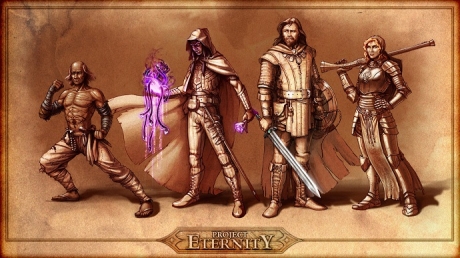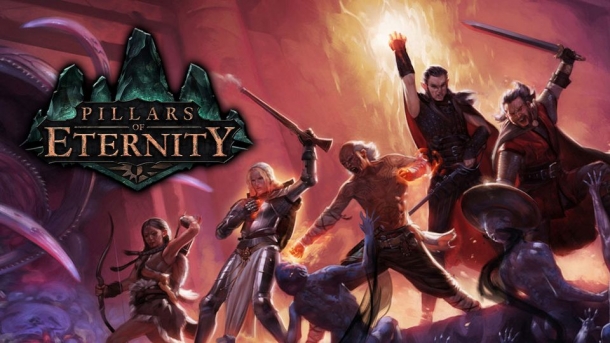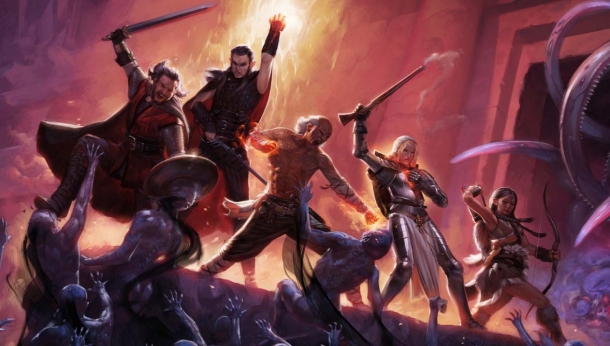Project Eternity is a real-time role playing game, featuring tactical gameplay and elements similar to Dungeons and Dragons.
Character Creation

Players will create their own character to be the focal point of the story. The first thing you will need to choose is your gender and race. There are a total of six reaces, each with several ethnicities within the race. Next you will have to choose your class,
Races
There are a total of six races in Project Eternity:
- Aumaua (Island and Coastal)
- Dwarf (Mountain and Boreal)
- Elf (Wood and Pale)
- Godlike
- Human (Savannah, Meadow, and Ocean)
- Orlan (Wild and Hearth)
Classes
There are a total of eleven classes in Project Eternity, each with their own strength and weaknesses:
- Barbarian
- Chanter
- Cipher
- Druid
- Fighter
- Monk
- Paladin
- Priest
- Ranger
- Rogue
- Wizard
Companions
 Companions are NPCs that aid you in your journey, having a vested interested in the protagonist's story. Each companion's personality and motivations open plot branches that generate conflicts for you to resolve over the course of the story, though they are not required to complete the story.
Companions are NPCs that aid you in your journey, having a vested interested in the protagonist's story. Each companion's personality and motivations open plot branches that generate conflicts for you to resolve over the course of the story, though they are not required to complete the story.
So far, confirmed companions include:
- Aloth, an elven wizard
- Cadegund, a human priest
- Forton, a human monk
- Edair, a human fighter
- Sagani, a dwarven ranger
A player's party can consist of up to five companions, with the use of party formation being a major feature and strategy to combat.
Inventory
You will have three different inventories: Equipment Storage, a "top of pack" inventory, and a stash. Note that carrying too much can cause you to suffer combat penalties.
Equipment
This is items and weapon sets available for your party to use in combat.
Top of Pack
This is a place for items that can be used out of combat. A finite number of items will be able to be stored here.
Stash
This is unlimited storage center that can be accessed from camps, home, or other similar locations.
Skills
Skills are used inside or outside of combat for a variety of purposes and grant auxiliary combat bonuses. There is two types of skills: Combat and Non-Combat
Combat skills are your standard skills used in battle.
Non-Combat skills use different resources than combat skills and can even lead to avoiding combat.
There are a variety of ways to learn skills, but all involde discovering new things in the game world, such as a hidden room or a secret book.
Talents
Talents are the equivalent to feats in other games and are gained every three levels or through quests and NPCs. There are two types of Talents: Class-Specific abilities and Class-Neutral abilities.
Class-Specific abilities are locked to a certain class, while Class-Neutral abilities are available to all characters regardless of class.
Modes
Project Eternity will have three optional gameplay modes that can be selected in any combination upon starting a new game, while also having the ability to tweak individual sub-features within each mode to their desire.
Expert Mode
This is a harder version of the game with fewer information displays, harder enemies and more punitive and demanding gameplay elements throughout.
Trial of Iron
A permadeath mode, you will have only one game save which is deleted upon death.
Path of the Damned
In Path of the Damned, all enemies from all levels of difficulty are enabled and the combat mechanics are amplified to make battles more brutal for everyone involved.

